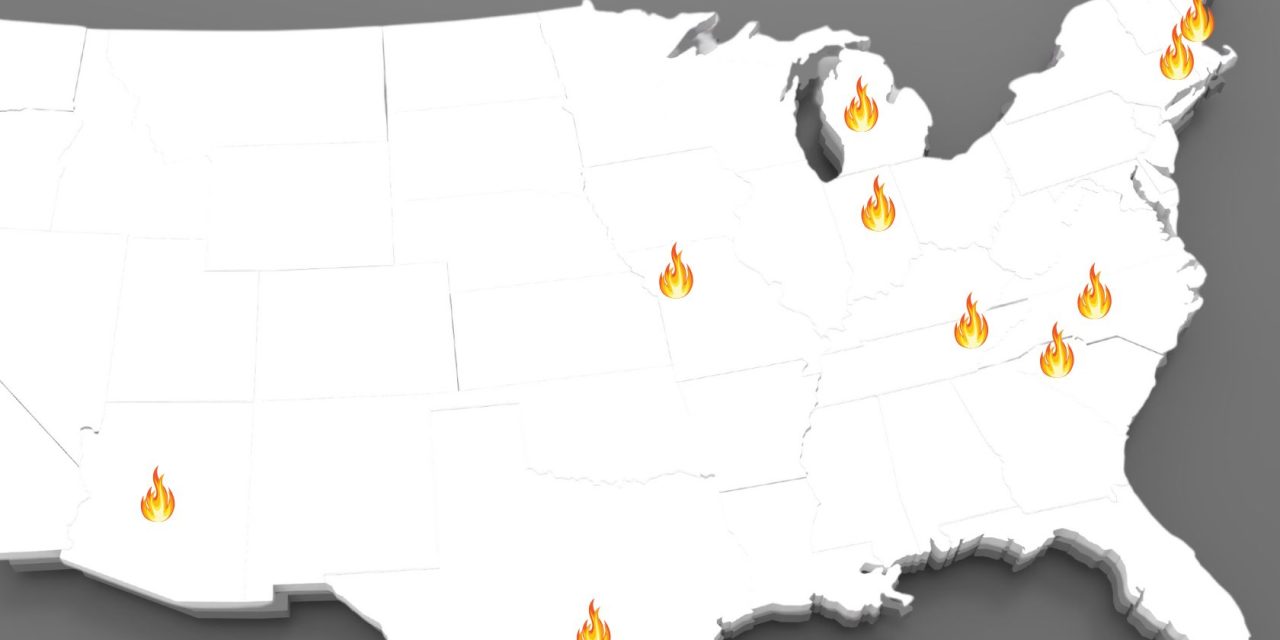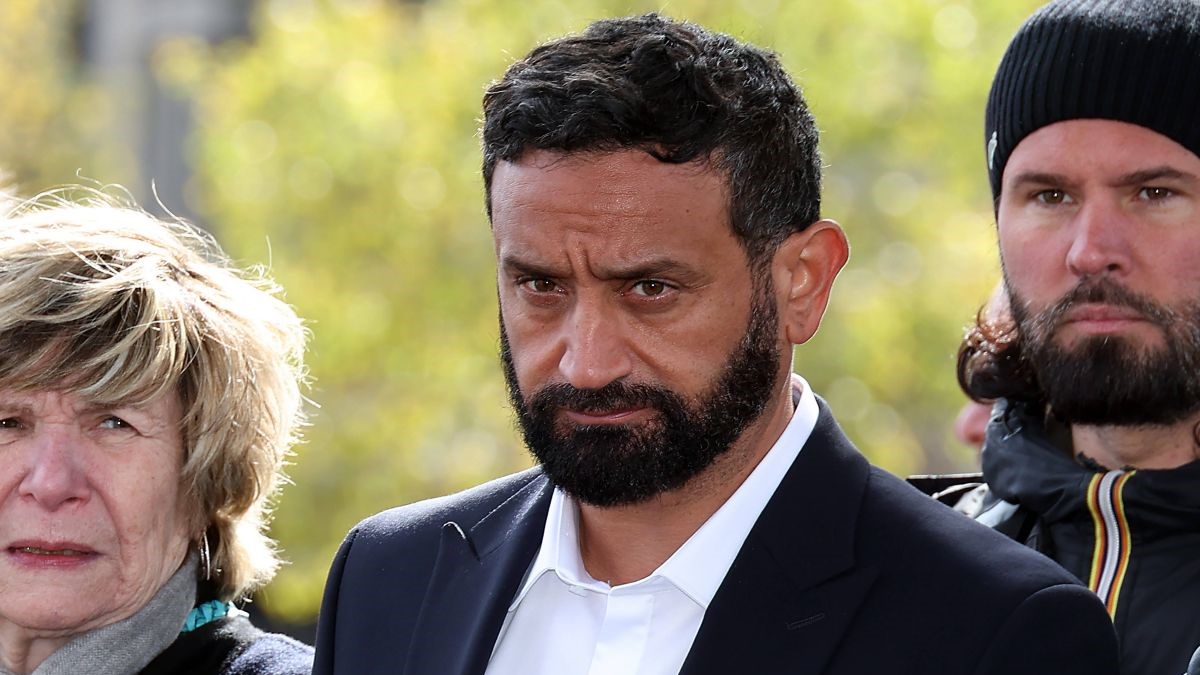The Ethics Of Betting On The Los Angeles Wildfires

Table of Contents
The Insensitivity of Profiting from Disaster
The very notion of profiting from the devastation caused by the Los Angeles wildfires raises profound ethical questions. This isn't simply about gambling; it's about the fundamental morality of exploiting human suffering for personal gain.
Exploitation of Human Suffering
Gambling on wildfires trivializes the immense suffering experienced by countless individuals. The act of placing a bet reduces a complex humanitarian crisis to a simple equation of odds and payouts, ignoring the human cost.
- Loss of homes and livelihoods: Many families have lost everything—their homes, their businesses, their sense of security. Betting on these losses feels deeply insensitive and disrespectful.
- Emotional trauma and grief: The psychological impact on survivors is immense, ranging from PTSD to profound grief. The thought of someone profiting from their pain is morally repugnant.
- Disrespect to first responders: Brave firefighters, paramedics, and other emergency personnel risk their lives to combat the fires and aid those affected. Betting on the scale of the disaster disregards their efforts and sacrifices.
The psychological impact extends far beyond the immediate victims. Witnessing the destruction and knowing that others are profiting from it can create a sense of injustice and further deepen the trauma. The act of betting on wildfires demonstrates a callous disregard for human life and suffering.
Normalizing Callousness
The widespread availability of betting markets on wildfires normalizes a callous attitude towards natural disasters. When such events are reduced to mere betting opportunities, it desensitizes individuals to their true human cost.
- Erosion of empathy: The constant exposure to such markets can diminish empathy and compassion for those affected. It shifts the focus from helping victims to focusing on personal financial gain.
- Undermining community solidarity: Instead of fostering unity and support during a crisis, widespread betting can create a climate of indifference and even cynicism.
- Impact on recovery efforts: A focus on profit rather than recovery can hinder efforts to rebuild communities and provide support to those in need. Resources could be diverted from aiding victims to fueling the gambling industry.
Viewing natural disasters as financial opportunities undermines the very essence of community spirit and collective responsibility. It fosters a culture of indifference, making it harder to address the complex challenges posed by such catastrophic events.
The Legality and Regulation of Disaster Betting
The legality of betting on wildfires exists in a legal gray area. The lack of clear, consistent regulations across jurisdictions makes it difficult to address the ethical concerns effectively.
Legal Gray Areas
The legal landscape surrounding disaster betting is fragmented and often ambiguous. Laws vary widely across jurisdictions, leaving significant regulatory gaps.
- Differing gambling laws: Regulations on gambling differ greatly between countries and even within states or provinces. Some jurisdictions may explicitly prohibit betting on natural disasters, while others may have no specific laws addressing this issue.
- Unregulated markets: The lack of clear regulations can lead to the proliferation of unregulated betting markets, which operate outside the purview of oversight and consumer protection mechanisms. This opens the door to exploitation and fraud.
- Challenges for regulators: Regulators face the immense challenge of defining and monitoring bets on natural disasters given the varied nature of such events and the rapid evolution of betting platforms.
Ethical Implications of Legal Betting
Even if the legality of betting on wildfires were clearly established, significant ethical concerns remain. The societal implications of such betting warrant serious consideration.
- Impact on disaster response and preparedness: The existence of betting markets can subtly influence public perception of disasters, potentially hindering timely and effective response and preparedness efforts.
- Influence of responsible gambling initiatives: The focus on responsible gambling needs to extend beyond traditional gambling activities to encompass the unique ethical challenges presented by betting on catastrophes.
- Public perception of disasters: The legalization of betting on wildfires sends a troubling message to society, potentially trivializing the severity of these events and normalizing the exploitation of human suffering.
The Role of Compassion and Responsible Gambling
Instead of seeking profit from tragedy, individuals can contribute positively by choosing compassion and supporting those affected by wildfires.
Alternatives to Disaster Betting
Numerous avenues exist for individuals to engage in positive actions during and after a wildfire.
- Charitable giving: Donating to reputable organizations that provide aid to wildfire victims is a direct way to offer support and alleviate suffering. Numerous charities specialize in wildfire relief and offer transparency in their work.
- Volunteer work: Contributing time and effort to support recovery efforts, whether directly assisting survivors or participating in rebuilding initiatives, is another valuable way to demonstrate compassion.
- Raising awareness: Advocating for responsible land management practices and improved wildfire prevention strategies can reduce the future incidence of these devastating events.
Promoting Ethical Gambling Practices
Promoting responsible gambling practices goes beyond merely avoiding bets on wildfires; it involves fostering a broader culture of ethical decision-making.
- Awareness campaigns: Initiatives focused on raising awareness of problem gambling and highlighting the ethical implications of certain types of bets are crucial.
- Support resources: Providing accessible and effective resources for gamblers struggling with addiction is essential in preventing harm and promoting responsible behavior.
- Ethical guidelines for gambling industries: The gambling industry itself needs to establish clear ethical guidelines that discourage betting on human suffering and promote responsible practices.
Responsible gambling is not merely an individual responsibility but a collective endeavor requiring societal commitment to creating a more compassionate and ethical world.
Conclusion
Betting on Los Angeles wildfires, or any natural disaster, presents a serious ethical dilemma. Profiting from human suffering and community devastation is morally reprehensible, regardless of legality. Let's prioritize compassion, responsible gambling, and supporting those affected. Instead of participating in the unethical practice of betting on wildfires, consider donating to wildfire relief efforts and supporting organizations dedicated to aiding those impacted by these catastrophic events. Let's choose empathy over exploitation and build a more responsible and caring society.

Featured Posts
-
 New Business Hot Spots A Comprehensive Guide For Investors
May 12, 2025
New Business Hot Spots A Comprehensive Guide For Investors
May 12, 2025 -
 Nikola Okikj I Kevin Khart Zabaven Sreten I Neochekuvana Iz Ava
May 12, 2025
Nikola Okikj I Kevin Khart Zabaven Sreten I Neochekuvana Iz Ava
May 12, 2025 -
 Exclusif Un Animateur Star De M6 Reagit A L Arrivee De Cyril Hanouna
May 12, 2025
Exclusif Un Animateur Star De M6 Reagit A L Arrivee De Cyril Hanouna
May 12, 2025 -
 Lily Collins Sexy New Calvin Klein Campaign Photos
May 12, 2025
Lily Collins Sexy New Calvin Klein Campaign Photos
May 12, 2025 -
 Bitter Einde Voor Bayern Muenchen Thomas Muellers Vertrek Een Verlies Van Ziel
May 12, 2025
Bitter Einde Voor Bayern Muenchen Thomas Muellers Vertrek Een Verlies Van Ziel
May 12, 2025
